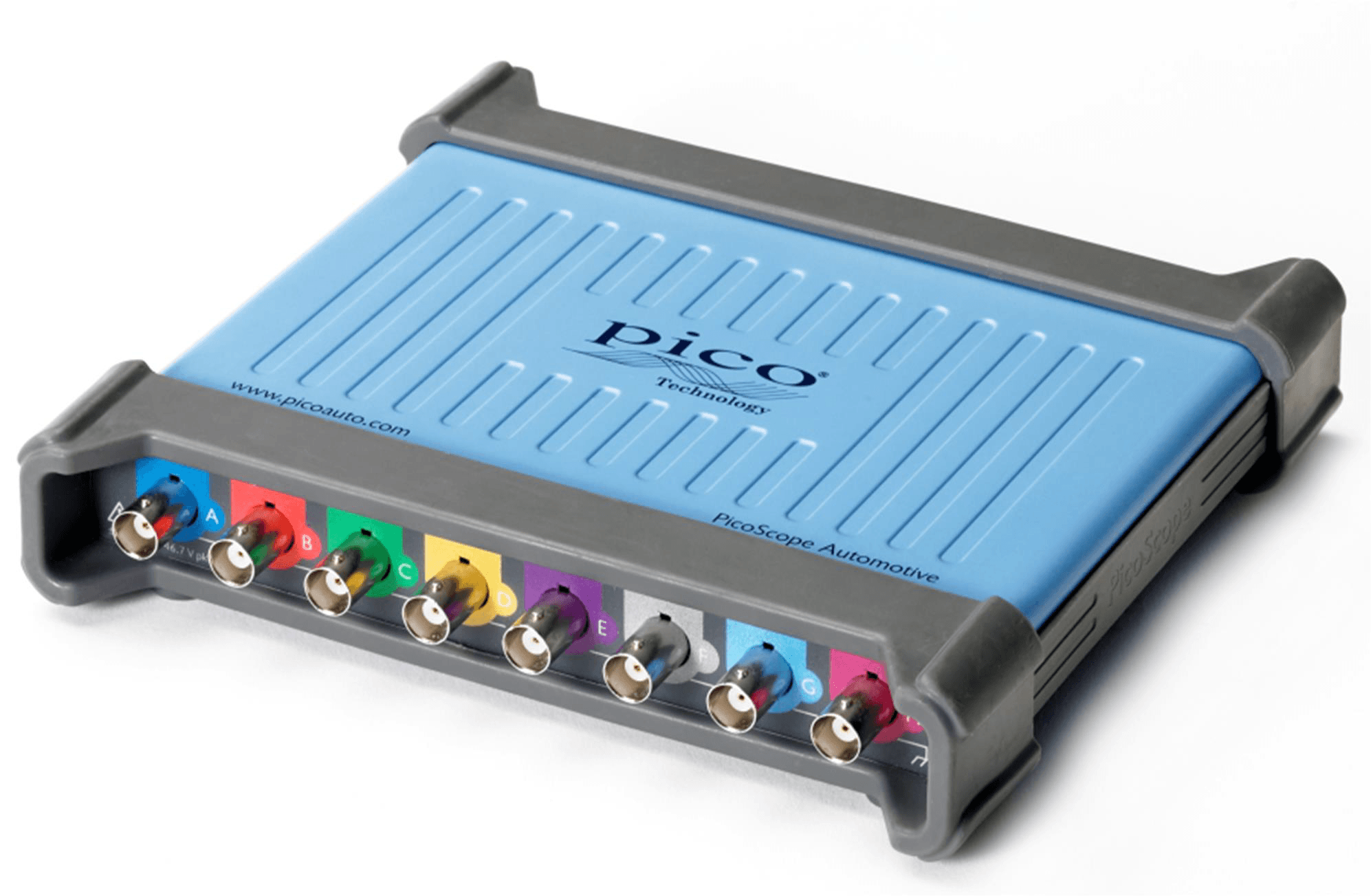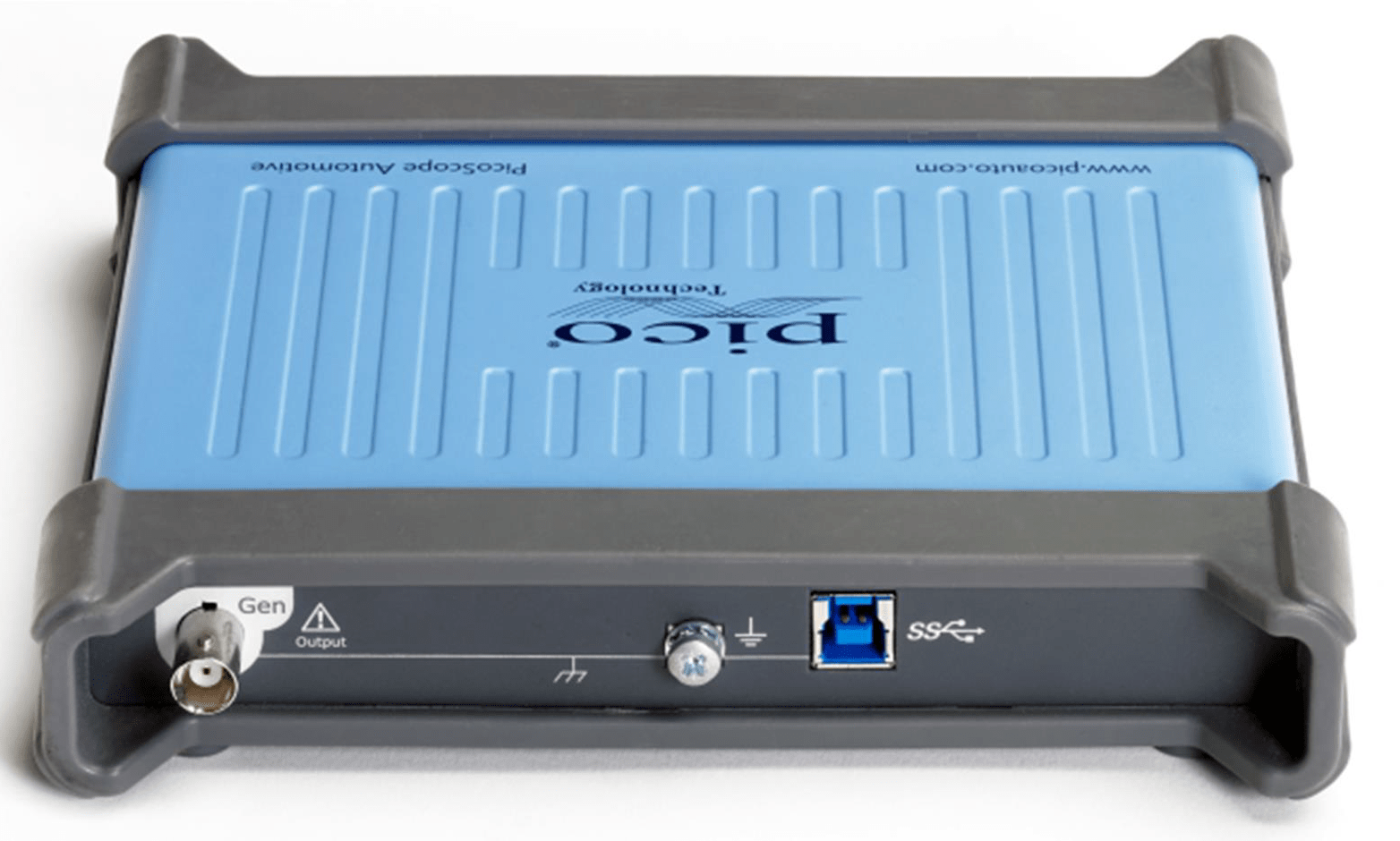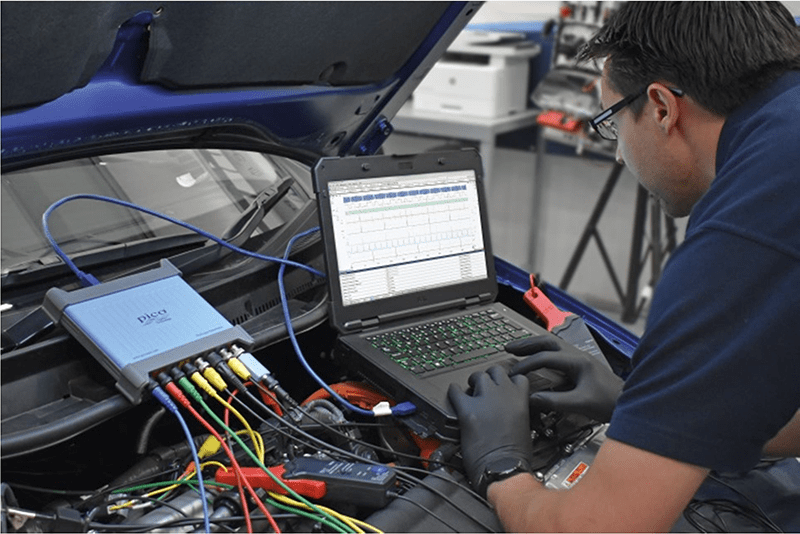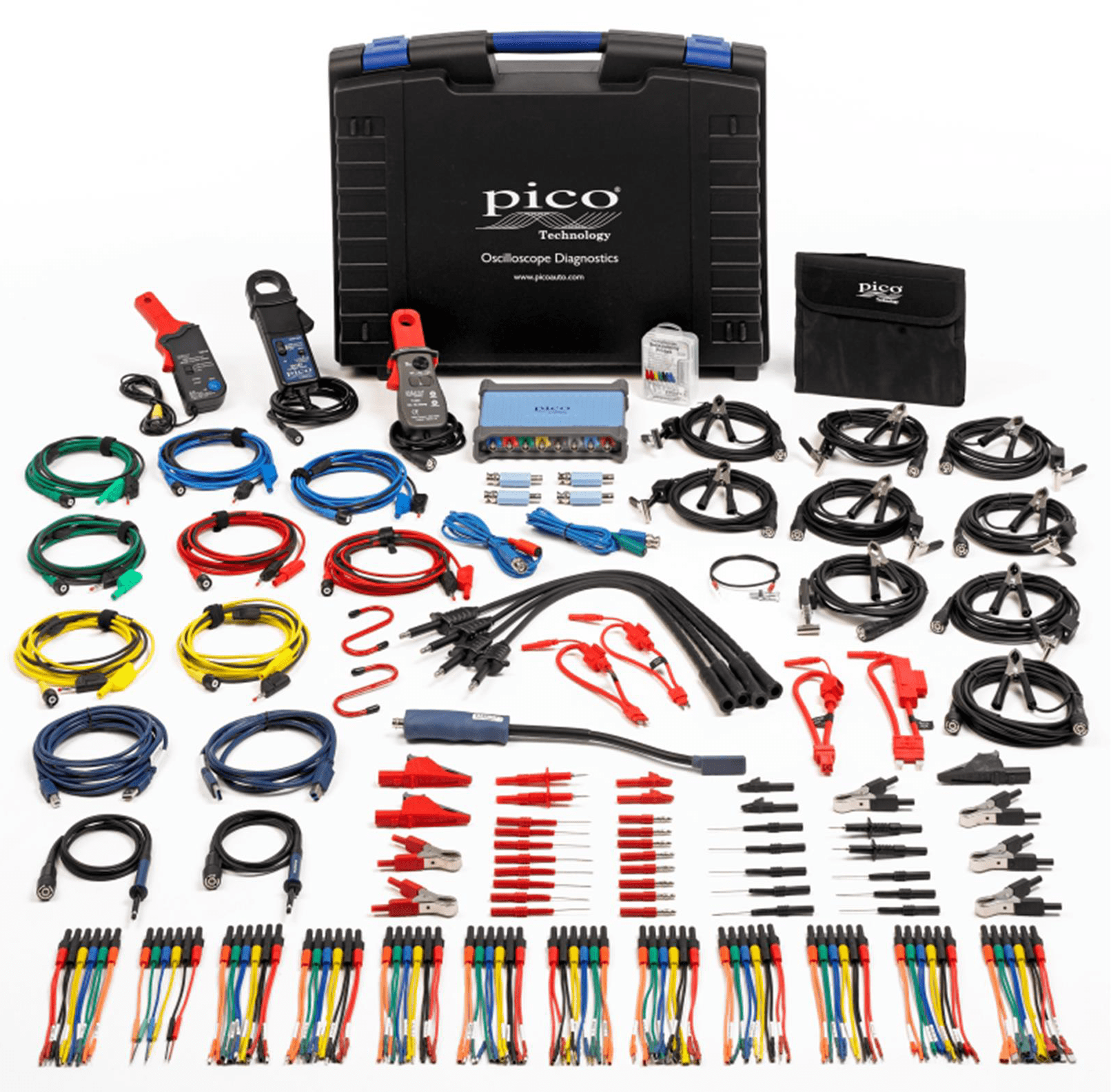4823 8-Channel Automotive PicoScope

Arbitrary Waveform and Function Generator
A useful addition is an arbitrary waveform and function generator, which allows you to simulate waveforms to test and stimulate actuators and mimic responses from sensors. Please note that you may need a special isolator, buffer amplifier or driver to use this feature successfully in the field due to the relatively high impedance and low over-voltage specification of the output. Please contact us should you require any assistance with this feature.
Deciding between a 4425A and a 4823
The 4425A is much more rugged than the 4823. It has a convenient hanging strap and a rubber boot to protect it in the harsh automotive environment. Its inputs can withstand much higher voltages than the 4823 (250V vs 100V). It has floating grounds and has a much higher sampling rate (400MS/s vs 80MS/s). The 4823 has many specialised applications but the general workshop technician should, as a general rule, always choose the 4425A unless there is a really pressing need for an eight channel instrument.
Pico Automotive have introduced a new 8-channel Automotive Oscilloscope called the 4823. It is the world's first high-resolution, 8-channel automotive oscilloscope fast enough for CAN, CAN-FD and FlexRay, including serial data decoding.
Why are 8 channels necessary?
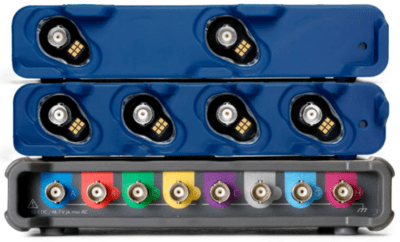
Eight channels facilitates testing of five, six and eight cylinder engines. V6 / V8 CAM timing (4/6 cams plus crank, and sometimes a WPS500X Pressure Sensor), and VVT timing systems. Trucks, earthmoving and agricultural vehicles often require a mix of electrical and hydraulic measurements on multiple valves simultaneously to diagnose problems with system interaction. The 4823 is ideal for full system diagnosis on components (including power, ground, signals, current) and general engine diagnostics where many signals need to be monitored simultaneously.
First Case Study using the 4823
See the first case study using the 4823 8-Channel PicoScope. Toyota Camry (import) | Camshaft correlation error (Quad Cam engine) on the Pico Auto Website. Scroll down to the bottom of the page and watch the video where Steve Smith describes the tests and the influence of Variable Valve Timing on the results.
The 4225A and 4425A vs the new 4823 PicoScope
The 4823 is very similar to the 4225A and 4425A oscilloscopes (i.e. 12 bits, 20 MHz) but there are a few specifications and features that are different. Please refer to the specifications for full details. We have summarised notable differences below:
| Pico 4225A | Pico 4425A | Pico 4823 | |
|---|---|---|---|
| Channels | 2 | 4 | 8 |
| PicoBNC+ | Yes | No | |
| Arbitrary Waveform & Function Generator | No | Yes | |
| Floating Grounds | Yes | No | |
| Input Range | 200V | 50V | |
| Input Protection | 250V | 100V | |
| Buffer | 200MS | 256MS | |
| Maximum Sample Rate | 400MS/s | 80MS/s | |
4823 8-Channel Automotive Oscilloscope Specifications
The 4823 is similar to the 'Test and Measurement (electronics)' 4824, except that it has protection fuses on its inputs and can be used with the PicoScope Automotive software.
Have a look at the full Specifications for all three Automotive Oscilloscopes.
You can also learn more about Oscilloscope Specifications from our article "Which Scope is Best?".

